How To Stay Safe On Public WiFi?
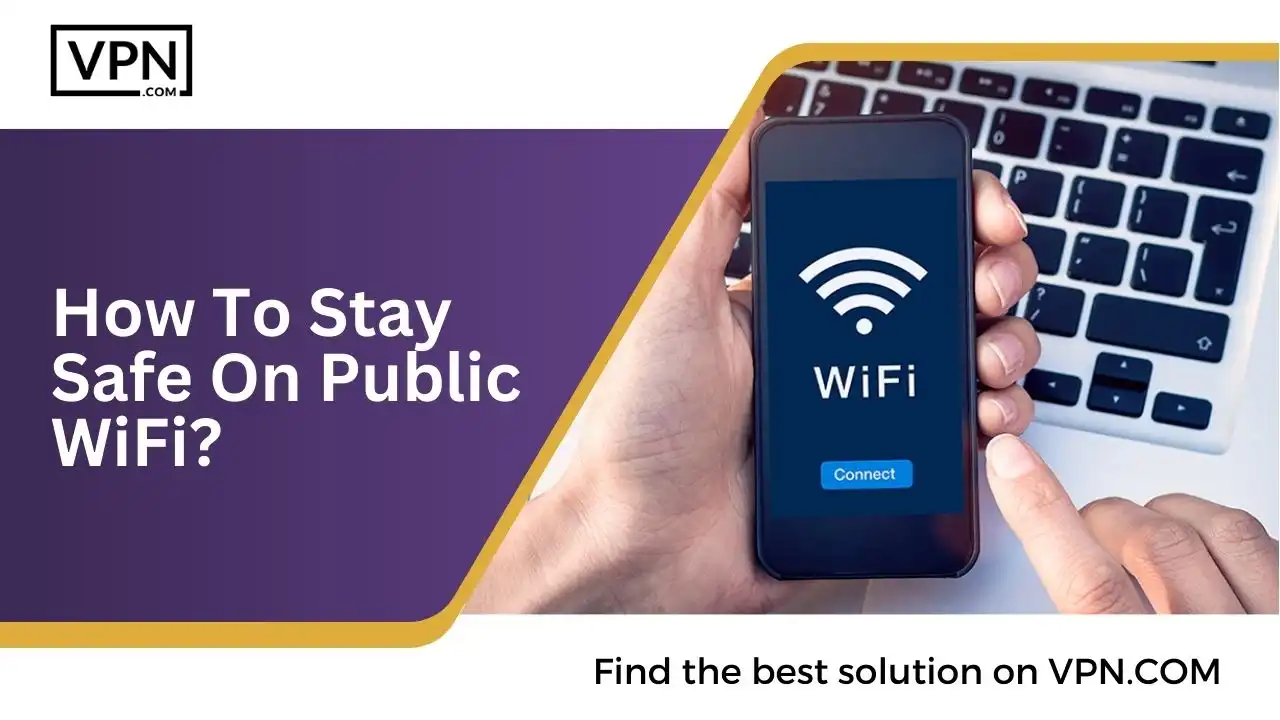
Using public Wi-Fi can be convenient, but it comes with public WiFi security risks. When you connect to an open network, your online activity and sensitive information could be exposed to hackers, a concern for public WiFi security. However, there are steps you can take to use public Wi-Fi more safely with regards to public WiFi security.
First, avoid accessing sensitive accounts like banking or email over public networks when possible, as part of public WiFi security measures. If you need to log into a sensitive account, use a virtual private network (VPN) to encrypt your connection for better public WiFi security. Also, be sure to turn off features like auto-connect and file sharing, which can make you more vulnerable in terms of public WiFi security.
Check that you are connecting to the correct Wi-Fi network instead of a fake network set up by hackers to enhance public WiFi security. It’s also wise to use antivirus software and keep your devices updated as a part of public WiFi security measures. With some basic precautions, you can still utilize public Wi-Fi networks without fully compromising your public WiFi security.
Key risks of using public Wi-Fi networks
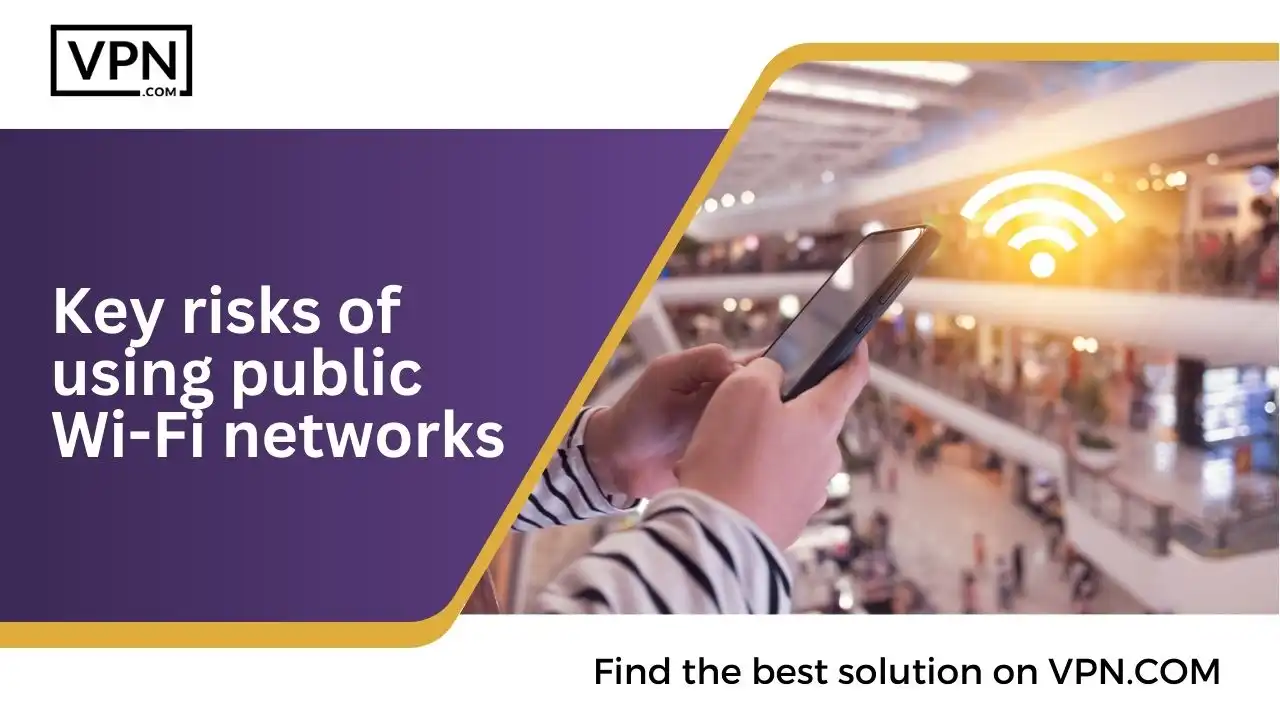
There are several key risks of using public Wi-Fi networks:

Get Started w/ NordVPN Today
- Top-rated VPN for OS unknown
- Ultra-fast speed in US in 2024
- Save 69% off with VPN.com Discount
- Plans starting at $2.99/month
GUARANTEE
Identity theft and hacking
Public Wi-Fi is often unsecured, allowing hackers potentially easy access to steal personal information or install malware on devices connected to the network. 40% of people have had their information compromised over public Wi-Fi.
Man-in-the-middle attacks
Hackers can position themselves between you and the Wi-Fi access point to view all unencrypted traffic, including sensitive information like passwords and credit card numbers.
Malware infections
Connecting to public Wi-Fi makes you vulnerable to viruses, worms, and other malware that can damage your device or steal your data. Malware can even be installed without you actively clicking on anything.
Activity and data monitoring
Public Wi-Fi routers keep logs of websites visited by connected devices. Hackers can access these logs to view browsing histories.
Automatic connections
Devices may automatically connect to any previously used Wi-Fi network, allowing hackers access even without using the Internet.
Safety Precautions While Using Public Wifi
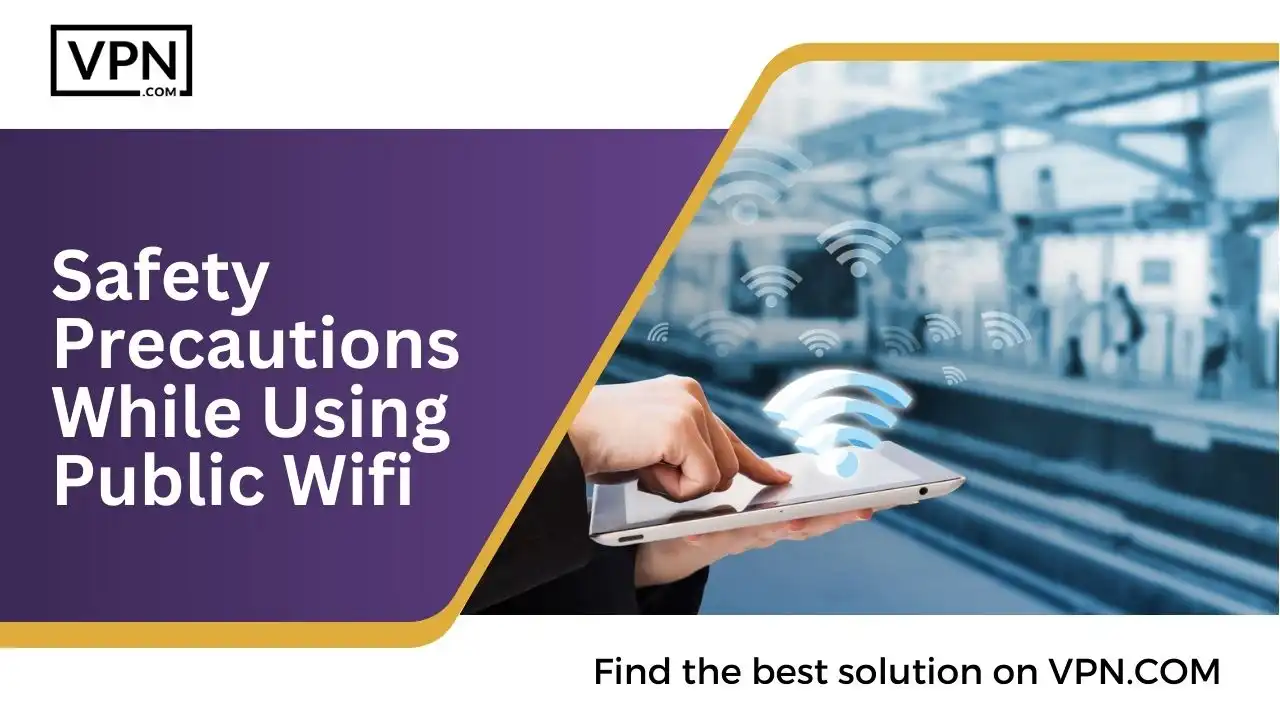
To stay safe on public Wi-Fi, experts recommend avoiding sensitive activity like online banking, using a VPN to encrypt traffic, turning off auto-connect features, being vigilant of fake Wi-Fi networks, keeping devices updated, and running antivirus software. While public Wi-Fi risks exist, taking basic security precautions can reduce your chances of issues.
Security Measures
Using public Wi-Fi networks has several prominent security risks that can lead to issues like identity theft, hacking, malware infections, and activity monitoring. Public Wi-Fi often lacks encryption and authentication, making it easy for hackers to access connected devices.
(MITM) attacks
One significant risk is man-in-the-middle (MITM) attacks, where hackers insert themselves between a user’s device and the Wi-Fi router to view and even alter all unencrypted traffic, capturing sensitive data like passwords and credit cards. 43% of public Wi-Fi users have had their information compromised this way.
Malware
Public Wi-Fi also often contains malware that spreads quickly to connected devices installed through fake software updates or malicious ads. Once infected, hackers can access files, track activity, steal data, and more without the user knowing.
Additionally, public Wi-Fi routers keep logs of all visited websites that hackers can access and view browsing histories. Users may also automatically connect to previously used Wi-Fi networks, granting access without actively using the internet.
Fake Evil Twin Wifi Networks
Fake evil twin Wi-Fi networks mimicking legitimate ones are also risks, tricking users into connecting to hacker-controlled hotspots instead. Phishing schemes are typical, too, such as using fake gateway pages to steal login credentials. While using public Wi-Fi is risky, experts say taking basic precautions can help reduce the chances of issues.
Recommendations include avoiding sensitive activity like banking, using a VPN to encrypt connections, turning off auto-connect features, being vigilant against fake networks, keeping devices updated, and running antivirus software. Risks exist but can be reduced with security awareness.
Types of malware that can infect public Wi-Fi networks
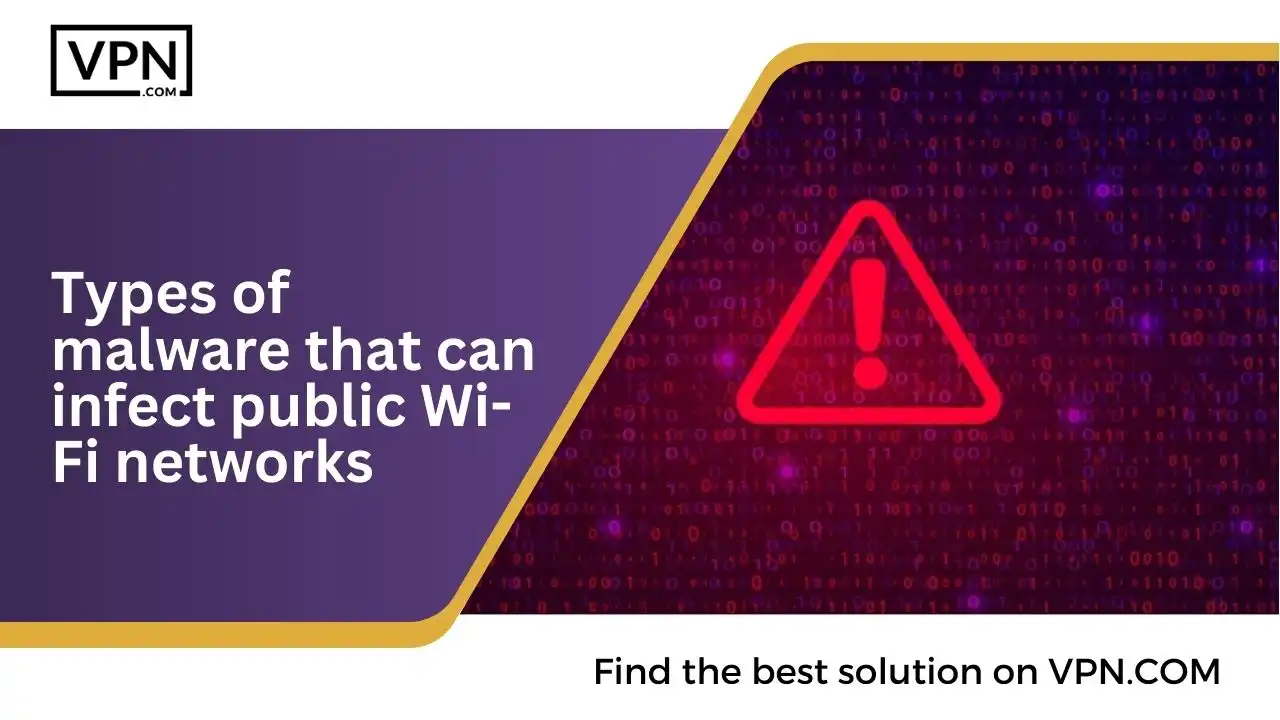
Some of the most common types of malware that can infect public Wi-Fi networks include:
Viruses
Viruses infect devices and replicate to other connected systems. They often rely on user actions like downloads to spread across Wi-Fi networks.
Worms
Worms are self-replicating malware that spreads automatically without user interaction. Worms on Wi-Fi can rapidly infect many connected devices.
Trojan Horses
Trojans disguise themselves as legitimate software or files to trick users into installing them, allowing malware payloads to infect devices.
Spyware
Spyware secretly gathers data on users’ activities without consent, stealing sensitive information over public Wi-Fi connections.
Adware
Adware displays unwanted and disruptive ads, sometimes using pop-ups that can install malware if clicked on public networks.
Botnets
Botnets infect multiple devices to control them remotely as part of a network for malicious purposes like DDoS attacks. Public Wi-Fi makes spreading botnets easier.
Cryptojacking
Cryptojacking malware hijacks devices to mine cryptocurrency using victims’ computing power over Wi-Fi connections.
The risks posed by malware demonstrate why public Wi-Fi users should exercise caution when performing sensitive activities like banking and accessing personal accounts. Using security measures like VPNs and antivirus software can help mitigate risks.
The Best Practices For Using Public Wi-Fi Safely
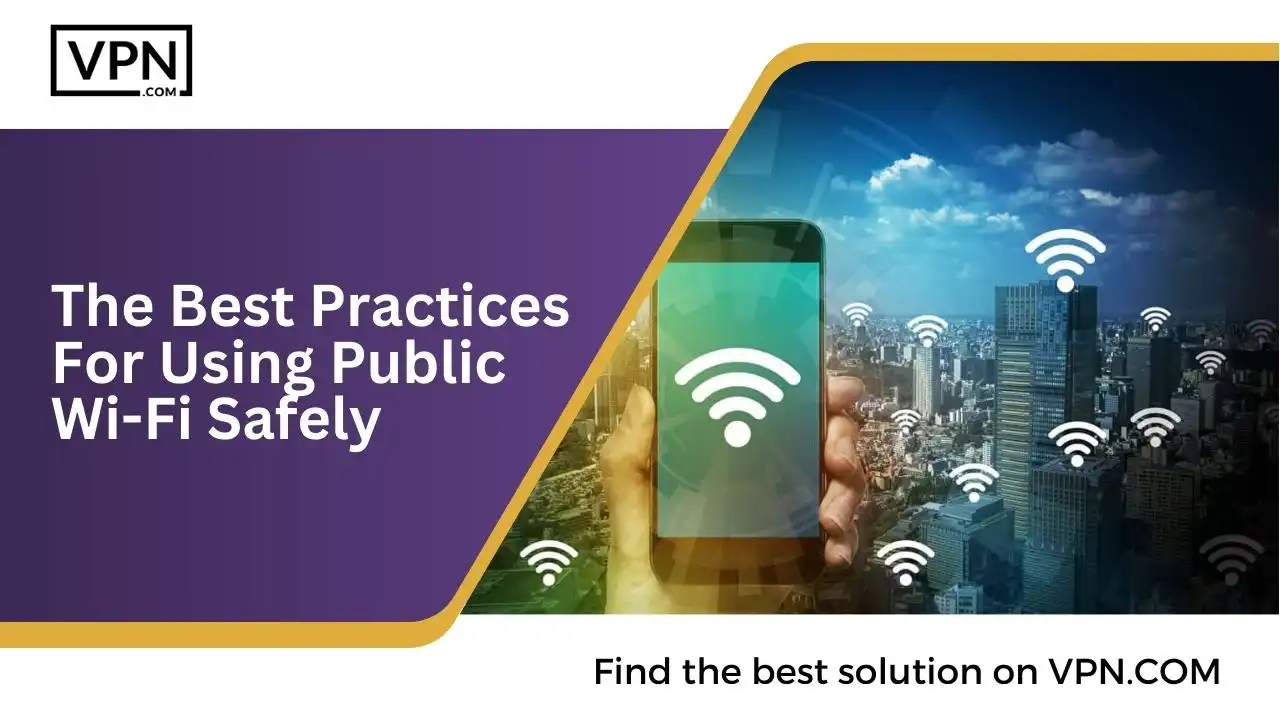
Using public Wi-Fi does carry risks, but being cautious and following public WiFi security best practices can help mitigate those risks. The most crucial step in public WiFi security is to avoid accessing sensitive accounts or data over public networks. This includes online banking, shopping with a credit card, accessing work email or files, or any other activity involving usernames, passwords, or financial details that could be intercepted in the context of public WiFi security.
If you need to access a sensitive account, using a virtual private network (VPN) encrypts your connection and helps keep your activity private, enhancing public WiFi security. Free VPNs exist, but paid services offer better public WiFi security. Be sure to choose a reputable provider. Also, confirm you are connecting to the correct Wi-Fi network instead of similarly named imposter networks to ensure public WiFi security. Ask staff to verify if they need clarification.
Once connected to public Wi-Fi, stick to sites using HTTPS encryption indicated by a lock icon. HTTP sites transmit unencrypted data vulnerable to hacking, compromising public WiFi security. Also, avoid downloads, which increase malware infection risks. Keeping your devices and software updated with the latest security patches can prevent exploits, too, contributing to public WiFi security.
When finished with a public Wi-Fi session, log out of any sites or accounts accessed and turn off auto-connect features on your device to prevent future unauthorized connections. Also, “forget” the Wi-Fi network if it is not needed again. Following these best practices reduces the risks with public Wi-Fi and allows safer usage when needed.
Key Public Wi-Fi Safety Tips
The following are Key Public Wi-Fi Safety Tips:
- You should avoid sensitive activities like banking or shopping
- You should use a paid VPN service to encrypt connections
- You should confirm the legitimacy of Wi-Fi network connections
- You should only access sites utilizing HTTPS encryption
- You should avoid downloading and installing software
- You should keep devices and software updated
- You should log out fully when done and turn off auto-connect
Key ways to protect your device from hackers when using public Wi-Fi
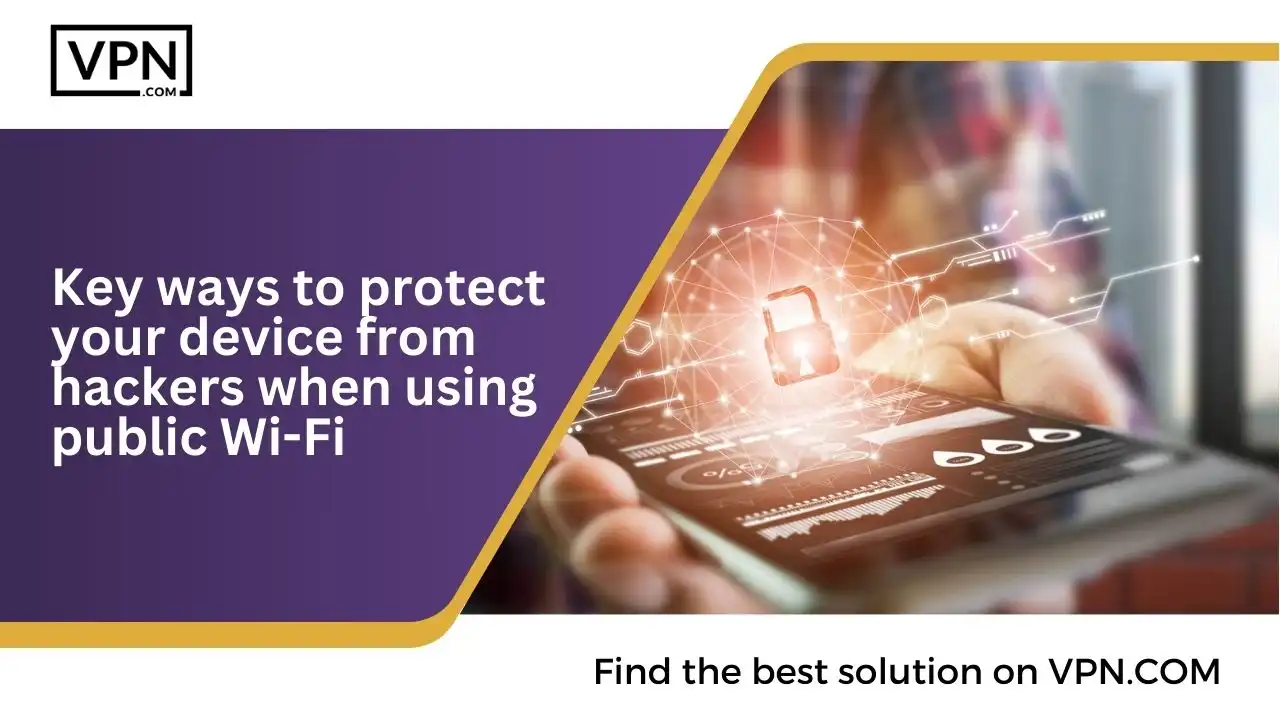
The following are some key ways to help protect your device from hackers when using public Wi-Fi:
- Avoid accessing sensitive information like banking or shopping sites that require passwords or financial details. It’s safest to avoid this type of activity on public networks.
- Use a virtual private network (VPN) to encrypt your connection and data. VPNs hide your activity and prevent snooping or data capture.
- Verify you are connecting to a legitimate Wi-Fi network instead of a fake hacker-controlled hotspot trying to mimic a real one. Confirm with staff if you need clarification.
- Turn off features like Wi-Fi auto-connect and file sharing that could allow unauthorized access to your device or files even without active internet use.
- Only visit sites using HTTPS encryption, indicated by a lock icon. HTTP sites transmit unsecured data that hackers can view.
- Keep your device’s operating system, security software, apps, and browser fully updated to patch potential security vulnerabilities.
- Use firewall and antivirus software to block malware and detect viruses or intrusion attempts.
- Avoid downloads more likely to contain malware – be extra cautious about what you install.
- Log out fully of accessed sites or accounts when done and “forget” the Wi-Fi network if not needed again.
Exercising basic security precautions like these can help you stay safe using public Wifi. While not wholly safe, public networks can be used more securely with some care.

Get Started w/ NordVPN Today
- Top-rated VPN for OS unknown
- Ultra-fast speed in US in 2024
- Save 69% off with VPN.com Discount
- Plans starting at $2.99/month
GUARANTEE
Conclusion
While public Wi-Fi provides convenient internet access, it also poses significant public WiFi security risks that users should address. Avoid accessing sensitive accounts or data over public networks, which could expose login credentials or financial information to potential hacking in public WiFi security environments. Instead, utilize a reputable VPN service when connecting to encrypt your activity in the context of public WiFi security.
Also, confirm you are connecting to a legitimate Wi-Fi network instead of a fake hacker-controlled hotspot. Once connected, only access sites employing HTTPS encryption and avoid downloads more prone to containing malware. Keeping your device and apps updated, using firewall and antivirus software, and turning off auto-connect features further help safeguard your device against public WiFi security vulnerabilities.
Remember to fully log out of accessed accounts before disconnecting as well. By being aware of the risks and following these best practices, you can use public Wi-Fi with greater peace of mind around public WiFi security. While public Wi-Fi will never be as secure as a private network, taking the proper precautions allows you to benefit from the convenience without fully compromising safety.
Customer Reviews for NordVPN: In-Depth Review, Tests, and Stats

Connection issues with MLB.TV
May, 2 2023

Prompt customer service
May, 6 2023

I would highly recommend
December, 15 2023



